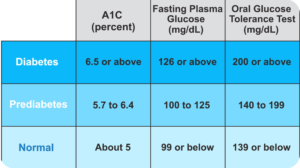Unless you’ve been in a self-imposed news blackout for the last year, you’ve likely read coverage about the new drugs being used—extremely successfully—for weight loss. The drug getting the most press is semaglutide, marketed under the brand names Wegovy and Ozempic. (A similar drug, tirzepatide, is marketed under the brand name Mounjaro.)

Originally developed to combat Type 2 diabetes, researchers discovered that the drugs coincidentally led to often dramatic weight loss. Patients experienced an average reduction of about 12 percent of body weight, with some people losing much more weight. This led to a reclassification effort and FDA approval of the drugs for weight loss in the case of obese patients. (Research has shown that many cases of obesity are due to genetic and other factors that may be—to a great degree—out of the patient’s control.)
These drugs act like the naturally occurring hormone peptide-1, reducing appetite and slowing the pace at which the stomach empties. That creates a feeling of fullness and leaves users with less hunger, which translates to eating much less.
Key Considerations
It’s important to note that the FDA approval is specifically for individuals with a BMI (body mass index) above 30, or above 27 with underlying medical conditions. Any other use is considered “off label”.
- Expense. Although usually covered in the case of Type 2 diabetes, these drugs are not generally covered by insurance for pure weight loss (considered “off label”). That can be a stumbling block to use, because the drugs can cost as much as $15,000 per year, and they are usually taken into perpetuity.
- Administration. If you have a problem with needles, you’ll likely struggle to take Ozempic or Wegovy. These drugs are self-administered by once-a-week injection. However, there is a pill form or semaglutide, under the brand name of Rybelsus. Other tablet forms are sure to be developed in the near future.
- Commitment. Although some patients may come off the drugs after they make substantive lifestyle changes, the majority of users will have to take the drugs for life, to maintain weight loss and other benefits. Discontinuing the drugs can lead to regaining lost weight. Given the expense, long-term use entails both a financial and physical burden.
- Side effects. The most pronounced side effects from these drugs are gastrointestinal, and include nausea, diarrhea, vomiting, constipation, bloating, gas, headache, fatigue and dizziness. The side effects are life-altering enough that one in five users in an early study opted to discontinue the drug. A less severe side effect is a gaunt facial appearance that some users felt made them look much older, due to fairly rapid and dramatic weight loss.
- The unknowns. These drugs are relatively new. As more pharmaceutical companies seek to enter the category, there are sure to be more studies. But right now, the long term effects of taking semaglutide or tirzepatide are not clearly understood.
It is important to note that, as powerful and effective as these drugs are, they are not a substitute for good nutrition and a healthy lifestyle. The benefits of regular sustained exercise, and a diet rich in whole foods, vegetables and fruits, remain the best ways to head off future diseases. In any case, consult your primary caregiver if you think one of the drugs may be right for you.





